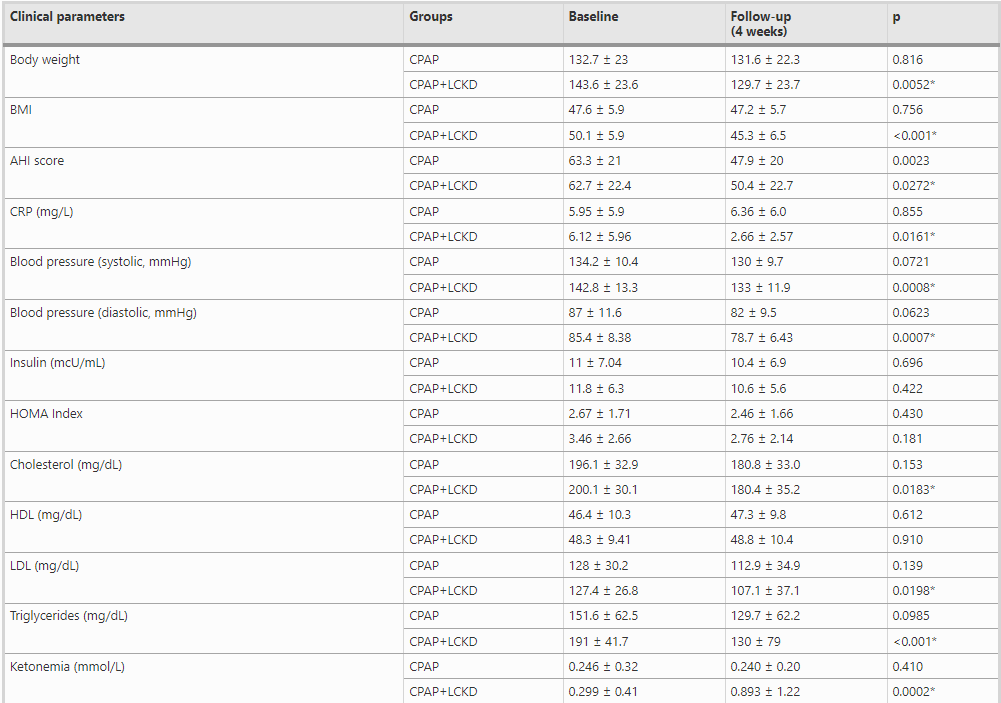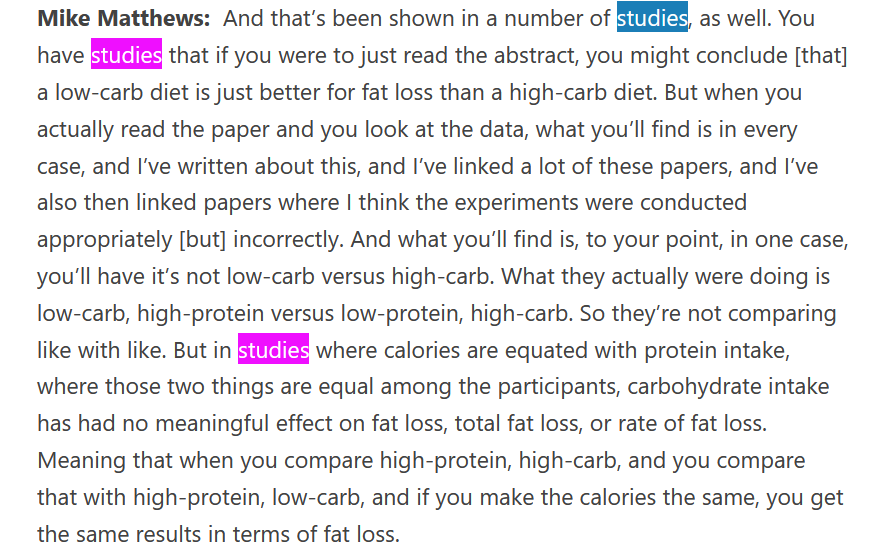Interesting study looking at obese patients with sleep apnea pre-bariatric surgery. Patients require at least 4 weeks of continuous positive airway pressure (CPAP) before surgery. The study took one group and applied CPAP, while the other applied CPAP and a KD. The results didn’t show any significant result between both group regarding apnea. However, the group on KD had several significant findings. See the table below (*) refers:
New Study on Sleep Apnea
It seems that they put a lot of thought into the study and got some interesting results. My major criticism is simply that four weeks was not really long enough for the subjects to become fully keto-adapted. I’d also have preferred the diet to have been ad libitum, rather than calorie-restricted, but of course the standard thinking is too entrenched for that to happen.
Yeah, because that really mucks up everything. Seen many arguments using these kind of studies to “prove” that it’s only calories. But between low fat and low carb, I know which one is maintainable, and it’s not low fat.
Interesting tidbits. CRP way down for keto; is insulin a function of calories?; odd that HOMA-IR for keto before keto is much higher, same with BP.
For instance, consider this:
From here:
The problem with statements like this is that low carb and low fat aren’t the same. Furthermore, while I prefer higher protein, not everyone does. Unless you’re comparing two ad-libitum low carb diets but with different protein sources (say, lean beef versus “fatty” beef), you’re not going to get what happens in real life if you calorie match. If protein is a miracle satiety food, then calorie matching won’t show that.
Yes, but it was long enough to see some really impressive improvements on key metabolic health markers such as CRP. I think it is amazing how quickly the body can begin to regain health despite years of metabolic mismanagement, as was certainly the case for this cohort.


